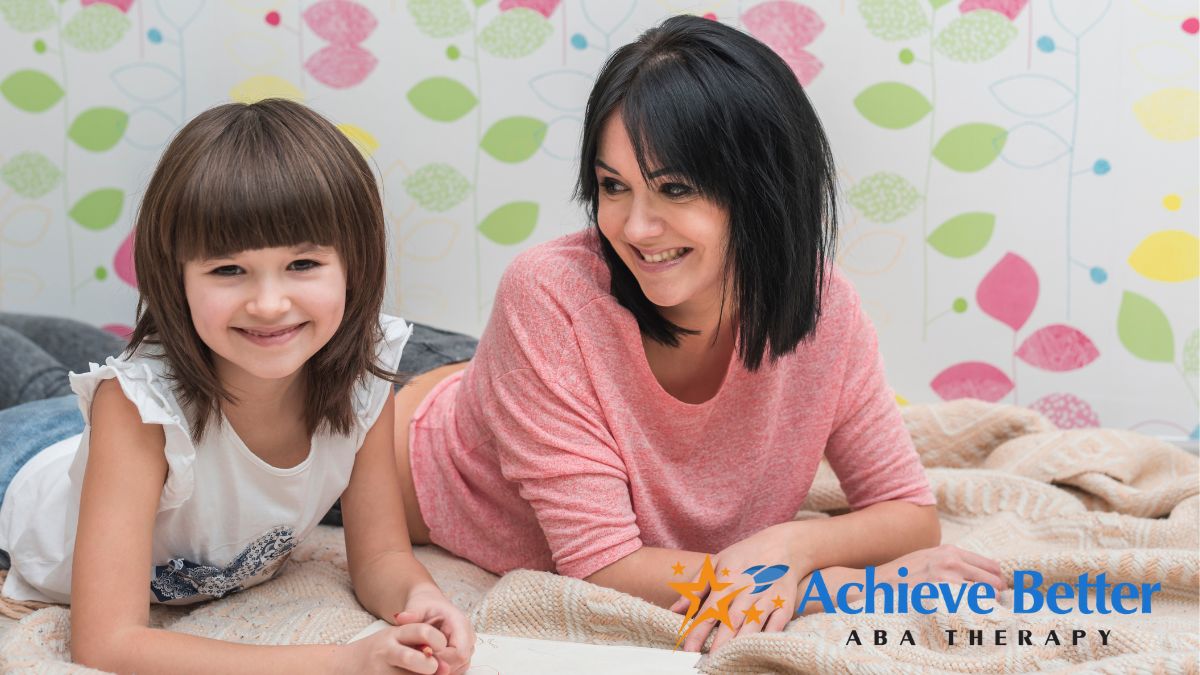Autism Without Social Deficits? Here's What to Know

Key Points:
- Some individuals may show traits of autism without the hallmark social communication difficulties, leading to questions about diagnosis and support.
- Understanding autism as a spectrum is essential—symptoms and challenges vary widely from person to person.
- While social skills may appear strong, there can still be hidden struggles in sensory regulation, routines, or communication styles.
Every child is wonderfully different. And sometimes, parents find themselves watching their child—maybe quirky, maybe intense, maybe laser-focused on specific interests—and wondering: could this be autism? But then comes the curveball. That same child is outgoing, makes eye contact, and even has friends. They don’t seem to fit the common image of autism, especially when it comes to social challenges.
This sparks a real and growing question among families: is there such a thing as autism without social deficits? This is not just an academic debate. It touches real families navigating real uncertainties. Autism has long been defined through specific criteria, especially around social communication and interaction. But as our understanding of neurodiversity deepens, so too does our recognition that autism doesn’t always look the way people expect.
Can Someone Have Autism Without Social Deficits?
No—not in the strict clinical sense. According to current diagnostic criteria, challenges in social communication and interaction are required for an autism diagnosis. However, the way these challenges appear can vary enormously. Some people with autism are social, talkative, and even charming, but still struggle with more subtle or situational aspects of connection.
This is where confusion often arises. A child may have strong verbal skills, enjoy talking with others, or even appear extroverted. But that doesn’t necessarily mean their social development is typical. They might miss nuanced cues, interpret language literally, or struggle with emotional reciprocity—even if those things aren’t obvious at first glance.
What Social Challenges Might Go Unnoticed?
Just because a child speaks clearly or plays with peers doesn’t mean their social skills are fully intuitive. Autism can affect social development in ways that are more subtle but still significant. Here are a few of the less visible social differences often missed:
1. Literal Interpretation of Language
A child might answer questions perfectly and follow conversations well—until figurative language is used. Sarcasm, metaphors, or jokes can be confusing or misinterpreted, leading to miscommunication.
2. Difficulty with Unspoken Rules
Many social interactions rely on unwritten rules: knowing when it’s your turn to speak, adjusting your tone for the situation, or recognizing when someone is uncomfortable. Children with autism may follow rules literally but miss the nuance.
3. One-Sided Conversations
A child might be enthusiastic about socializing, but only want to talk about their favorite subject, without noticing if others are engaged. They may not realize when someone is bored, confused, or trying to change the topic.
4. Masking or Camouflaging
Some children learn to mimic social behaviors by watching others or through direct teaching. This can make it seem like they’re socially fluent when they’re actually exerting tremendous mental energy just to keep up. Over time, this can lead to exhaustion or anxiety.

Why the Term "Autism Without Social Deficits" Persists
The phrase “autism without social deficits” continues to pop up because it captures a common experience: a child who doesn’t fit the traditional mold. Parents may feel dismissed by doctors who say their child is “too social” for autism, even when other signs are present—rigid routines, sensory sensitivities, intense interests, or meltdowns over small changes.
This mismatch between public perception and clinical reality creates understandable confusion. The truth is that autism is a spectrum, and that spectrum includes people who are:
- Highly verbal or nonverbal
- Outgoing or reserved
- Excellent at masking or visibly different
- Struggling socially or succeeding with support
The idea of autism without social deficits may actually reflect the need for a broader and more individualized understanding of how autism looks in real life.
Signs to Look For Beyond Social Communication
Even when a child seems socially connected or outgoing, other signs of autism may still be present—just in different areas. It’s often in the everyday patterns, preferences, and reactions that these traits quietly show themselves.
Repetitive Behaviors and Restricted Interests
Some children become intensely focused on specific topics or activities. They might talk endlessly about space, dinosaurs, or train schedules, showing a level of passion and repetition that goes beyond typical interest. Others may engage in behaviors that appear unusual, like lining up toys over and over, flapping their hands when excited, or repeating phrases they've heard on television without clear context.
Sensory Processing Differences
Sensory sensitivities are also common and can reveal themselves in small but telling ways. A child may cover their ears at the sound of a vacuum, refuse to wear certain clothing due to the feel of the fabric, or avoid foods with particular textures. These responses aren’t just about preference—they often reflect genuine discomfort or overload in the nervous system.
Difficulty with Transitions or Flexibility
Additionally, changes in routine can be especially hard. A missed turn on the way to school or a substitute teacher might trigger intense distress, not because the child is being difficult, but because unpredictability feels threatening. In these moments, what looks like a meltdown is really a cry for stability and reassurance.
When to Seek a Formal Evaluation
If a child is showing traits that align with autism—whether or not they have obvious social difficulties—it’s worth pursuing an evaluation by a developmental pediatrician, child psychologist, or autism specialist.
Formal evaluations often involve:
- Developmental history interviews
- Observations in different settings
- Standardized tools like the ADOS-2 (Autism Diagnostic Observation Schedule)
An accurate diagnosis opens doors. It not only validates a family’s experience but also connects the child to services and supports that can make a real difference.
How Support Can Help Even Without Clear Social Challenges
Even children who seem socially adept may benefit from guidance in navigating the world around them. Support can help with:
- Self-regulation: Managing emotions and staying calm in stressful situations
- Executive functioning: Planning, organizing, and following through on tasks
- Sensory strategies: Building comfort in overwhelming environments
One of the most research-supported tools for teaching these skills is Applied Behavior Analysis (ABA) therapy. ABA sessions can be tailored to meet each child’s needs—whether social, behavioral, or functional.
Practical Strategies Parents Can Use at Home
Parents are a child’s first and most consistent teachers. Supporting neurodivergent children at home doesn’t require advanced training—just patience, structure, and insight. Here are a few strategies that can help:
Create Predictable Routines
Children often feel safer and more regulated when they know what’s coming next. Use visual schedules or consistent daily rhythms.
Use Clear, Literal Language
Avoid sarcasm or idioms. Be direct, and check for understanding by asking the child to repeat or demonstrate.
Model and Practice Social Skills
Even if social deficits aren’t obvious, children may benefit from role-playing scenarios, watching videos of interactions, or reading social stories.
Validate Differences
Let your child know it’s okay to think, feel, and communicate differently. Affirming their experience builds confidence and emotional health.
Looking for Personalized Support? Try ABA Therapy in North Carolina
Understanding autism—especially when it doesn’t follow expected patterns—can feel isolating. That’s why it helps to have expert guidance. Achieve Better offers ABA therapy in North Carolina, with programs designed to support children across the autism spectrum, whether or not they show typical social challenges.
ABA therapy focuses on building meaningful skills—like communication, flexibility, self-care, and emotional regulation—through evidence-based strategies and compassionate care. It meets children where they are and helps them grow toward greater independence and confidence.
If you’ve ever asked yourself whether your child could have autism without social deficits, it may be time to explore that question further—with the right team beside you. Get in touch with us today and discover how customized ABA therapy can support your child’s unique path forward.
Similar articles
Contact us today to learn more.

.jpg)
.jpg)


.jpg)






